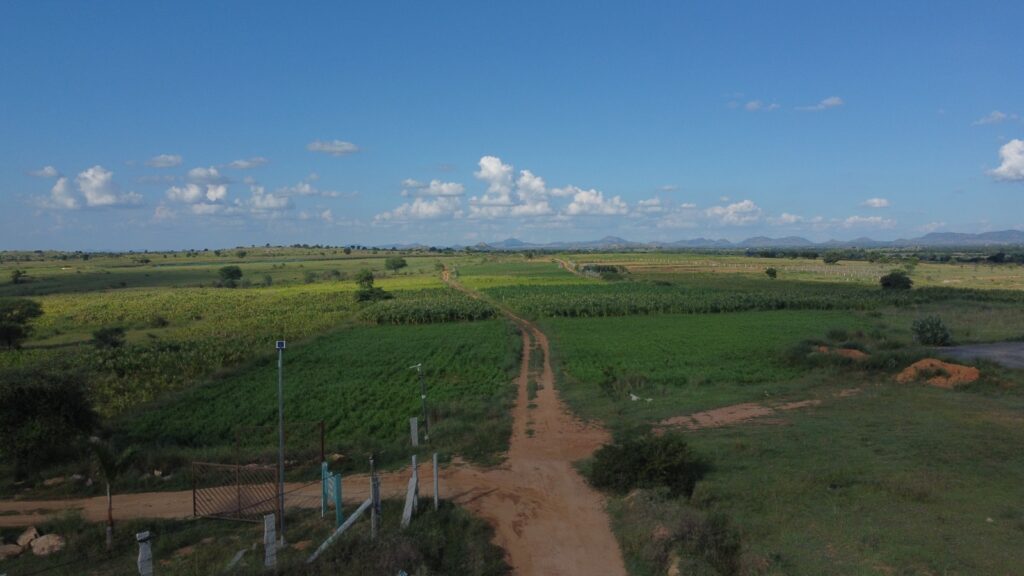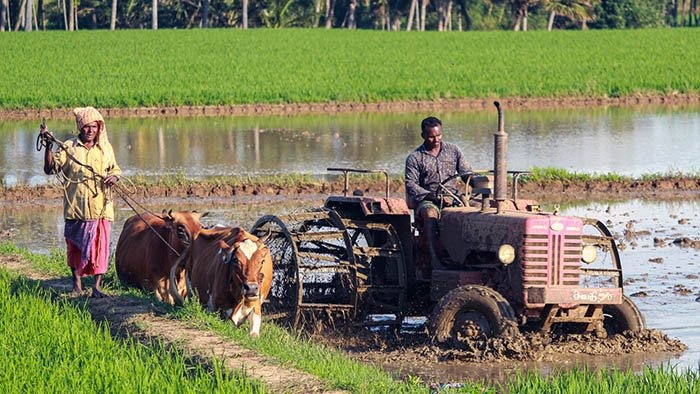In the rapidly changing landscape of agriculture, the way we approach farming has evolved significantly. More people today are not only considering farming as a means of producing food but also as a viable investment option and a pathway to a sustainable lifestyle. This evolution has given rise to two popular models: managed farmland and traditional farming. While both contribute to the production of essential resources, each offers unique advantages and challenges. For those interested in agricultural investments, choosing the right model can make all the difference in terms of profitability, sustainability, and overall lifestyle.
At Utopiaa, we understand these complexities and aim to help you navigate the choice by presenting a clear comparison between managed farmland and traditional farming. Let’s dive into what each model offers and how they differ.

Managed farmland is a model that combines professional management with sustainable farming practices, allowing landowners to enjoy the benefits of farming without the hands-on effort. Managed farmland companies, like Utopiaa, oversee every aspect of the farm, from crop selection to land preparation, planting, harvesting, and even the sale of produce. This model is appealing to individuals looking for a more passive form of land ownership that still yields returns.
To understand which model aligns better with your goals, let’s explore the key differences and benefits.

In traditional farming, the time commitment is considerable. From early mornings in the field to managing equipment, applying fertilizers, and handling unforeseen challenges, traditional farming demands a hands-on approach. For people with other jobs or commitments, finding the time to manage a farm can be a significant hurdle.
Managed farmland, however, relieves landowners of these responsibilities. Professional teams handle all aspects of the farm, allowing owners to enjoy the rewards without needing to be involved daily. This model is ideal for those looking for a more flexible investment that doesn’t require constant oversight.
Both managed farmland and traditional farming offer income potential, but they differ in how that income is generated and the effort required to realize it. In managed farmland, returns come passively through crop sales and the potential appreciation of the land. Utopiaa, for example, maximizes returns by selecting high-value crops, efficient management practices, and sustainable methods that appeal to the eco-conscious consumer market.
Traditional farming can also yield substantial returns, especially if the landowner can dedicate their full attention to optimizing crop yields and costs. However, traditional farming often involves higher initial costs and ongoing expenses for equipment, fertilizers, and labor, which can impact the net profit.
Traditional farming requires a deep understanding of agriculture, pest control, weather patterns, and soil management. For beginners, the learning curve can be steep, with costly mistakes affecting productivity and profitability.
In contrast, managed farmland takes the need for extensive knowledge out of the equation. Professional farm managers bring industry expertise and leverage modern agricultural techniques to maximize yield, which benefits landowners who may not have a farming background but still want to explore agricultural investments.
Many managed farmland projects prioritize eco-friendly practices, given the rising demand for sustainable farming. At Utopiaa, our managed farmlands are designed with the environment in mind, integrating organic practices, efficient water management, and eco-friendly technologies that protect and enhance the natural ecosystem.
Traditional farming can also be sustainable, but it depends heavily on the farmer’s choices and practices. Some traditional farmers adopt eco-friendly methods, while others may rely on chemical fertilizers and pesticides. The environmental impact in traditional farming varies widely and may not always meet sustainable standards unless the farmer is committed to eco-conscious practices.
Managed farmland is designed to be scalable. Investors can purchase multiple plots or larger tracts without adding significantly to their workload, as professional management takes on the additional tasks. With Utopiaa’s managed farmland, expansion becomes feasible, allowing investors to diversify their agricultural holdings with minimal personal involvement.
Traditional farming, however, becomes more challenging to scale due to the increase in workload and labor required. Expanding a traditional farm requires more equipment, a larger workforce, and increased oversight, which can be daunting for individual farmers.
For many people, farming is more than a financial pursuit—it’s a lifestyle choice. Traditional farming offers a close connection to the land and nature, creating a fulfilling lifestyle for those willing to invest in it. There is a unique satisfaction in producing one’s food, contributing directly to the local food supply, and being part of the rural community.
Managed farmland, while less hands-on, still allows owners to connect with the land. Utopiaa encourages owners to visit, experience the farm life, and enjoy the surroundings, without being bound by the day-to-day challenges of traditional farming. This balance between investment and lifestyle allows owners to enjoy the perks of rural life without the daily grind.
At Utopiaa, our managed farmland options are tailored for those looking to invest in sustainable agriculture while maintaining a flexible lifestyle. Here’s what sets us apart:
Both managed farmland and traditional farming offer unique benefits, but the best choice depends on your personal goals, available time, and level of interest in daily farm management. Managed farmland provides a blend of convenience, sustainability, and passive income potential, while traditional farming offers a hands-on experience that can be incredibly rewarding for those with the time and knowledge to succeed.
In the end, the choice between managed farmland and traditional farming isn’t simply a question of profit—it’s a decision about how you want to engage with the land, the lifestyle you seek, and the legacy you hope to leave. At Utopiaa, we’re here to support you in making the choice that best aligns with your vision, providing an option that combines the stability of agricultural investment with the flexibility and ease of professional management.